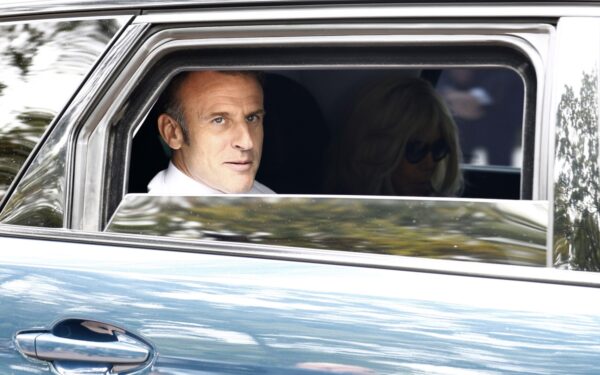In the upcoming French presidential election, Marine Le Pen will likely face off against main contender François Fillon, a center-right free market reformer. François Fillon is the true conservative, a candidate who is proposing economically sound reforms, is distrustful of government, and appeals to common human decency.
Marine Le Pen instead wants to prevent free movement of goods and people, plans to withdraw from trade pacts, and is fixated with increasing state control of the economy. Her policy proposals ironically echo those of the French Communist Party of the 1950s and 1960s. French conservatives should therefore remember what conservatism means, and French liberals ought to unite with the center-right for the greater national good — just as they did in 2002 when they voted to stop Le Pen’s father.
The French economy has many structural problems that threaten both future French prosperity and the survival of the Euro currency and European Union. French voters have a rare chance to address some of those long-standing issues with a dose of basic economics and fiscal realism. The alternative would be the twin dangers posed by Le Pen’s National Front: an ethnic and economic nationalism that would threaten civil liberties and worsen the economy rather than restore it.
France last experimented with minor economic reform under center-right President Nicolas Sarkozy, whose reforms eliminated one-in-two civil service jobs and raised the retirement age by two-and-a-half years. Sarkorzy wanted to help France afford future pension payments because some estimates showed that, unless benefits were reduced, most countries would eventually have to raise their retirement age to as high as 75. Sarkozy’s reforms were met with massive strikes and some violent protests. Eventually, France appeared to reject the idea of reform when it elected Socialist President Francois Hollande who reversed Sarkozy’s modest pension reforms.
Yet, uncomfortable economic realities continue to surface in France’s national discourse, and the French populace is once again ready for change. Since the 2008 crisis, France’s annual GDP growth rate has been weak to non-existent while the debt-to-GDP ratio ballooned from 68.1 percent to 96.1 percent and wage growth remained stagnant. Moreover, general unemployment has remained at 10 percent, and youth unemployment is nearly 24 percent. Finally, France’s high taxes and regulations have earned it 29th place in the World Bank’s Ease of Doing Business Report, putting it behind powerhouse competitors like Germany, but also embarrassingly behind former Soviet Republics such as the Baltic States and Georgia.
Having seen the continual failure of statist economic policies for decades, Fillon knows that if France is to be strong, free, and prosperous, then it cannot continue down the same road. Le Pen, on the other hand, believes in a state-led economy and wants to use the power of centralized authority to force job creation and keep companies at home through protectionism — even if that means raising the cost of living. Fillon would reduce the civil service by 500,000, eliminate the 35-hour work week, and scrap the wealth tax. Le Pen, however, would likely increase the government’s workforce, especially security and police services, and would likely leave pensions insolvent. Fillon would likely seek to use France’s powerful role in the European Union (EU) to push for broader needed EU economic reforms, whereas Le Pen would withdraw France from the EU, putting a likely de facto end to the project.
The latest polls have Fillon likely to win the presidency with a comfortable 66 percent of the vote, and he would be by far the best candidate for France and for Europe. Fillon is the most pro-market candidate France has had in a long time and recognizes the need to reduce the debt, become more competitive, and make a costly state leaner. While he has his flaws, he is the better choice for France – Le Pen’s populism might lead a revolution, but she would be unable to govern successfully. Fillon plans to, and should, brand Le Pen as a false conservative and a false prophet. It is up for the French people to see her as such.
John Dale Grover is a Young Voices Advocate and M.S. in Conflict Analysis and Resolution candidate at George Mason University.



